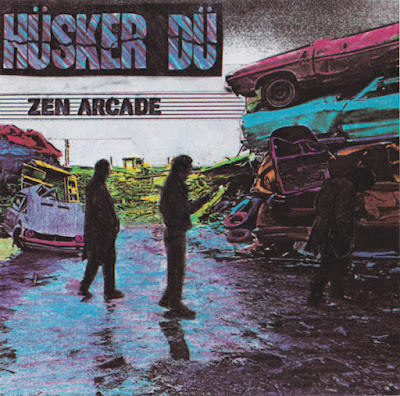
Ball's second album in a row to obsessively chronicle the aftermath of a romantic breakup (the first was 1996's If Ever a Man Loved a Woman), Catholic Guilt posits Edward Ball as the middle-aged, balding, British male equivalent to Lili Taylor's character in Cameron Crowe's Say Anything, endlessly writing songs about her ex-boyfriend. The difference is that Ball's songs are actually really good. Starting with the self-lacerating single "The Mill Hill Self-Hate Club," which has the horn-driven groove of an early Style Council single, Ball examines the relationship from every possible angle, with leavening doses of dry wit and warm-hearted compassion to balance out darker tunes like the lengthy, almost Dylan-esque "Docklands Blues." The witty "Controversial Girlfriend," which sounds almost like Nick Lowe backed with the Barenaked Ladies, is another clear standout, but nearly all of the album mixes intriguing lyrics with catchy, hook-filled melodies and substantial production. For Ball, whose albums with the Times seemed more concerned with fashionable mimicry than emotional directness, this album is surprisingly weighty and thoughtful

In many ways, it's impossible to overestimate the impact of Hüsker Dü's Zen Arcade on the American rock underground in the '80s. It's the record that exploded the limits of hardcore and what it could achieve. Hüsker Dü broke all of the rules with Zen Arcade. First and foremost, it's a sprawling concept album, even if the concept isn't immediately clear or comprehensible. More important are the individual songs. Both Bob Mould and Grant Hart abandoned the strict "fast, hard, loud" rules of hardcore punk with their songs for Zen Arcade. Without turning down the volume, Hüsker Dü try everything -- pop songs, tape experiments, acoustic songs, pianos, noisy psychedelia. Hüsker Dü willed themselves to make such a sprawling record -- as the liner notes state, the album was recorded and mixed within 85 hours and consists almost entirely of first takes. That reckless, ridiculously single-minded approach does result in some weak moments -- the sound is thin and the instrumentals drag on a bit too long -- but it's also the key to the success of Zen Arcade. Hüsker Dü sound phenomenally strong and possessed, as if they could do anything. The sonic experimentation is bolstered by Mould and Hart's increased sense of songcraft. Neither writer is afraid to let his pop influences show on Zen Arcade, which gives the songs -- from the unrestrained rage of "Something I Learned Today" and the bitter, acoustic "Never Talking to You Again" to the eerie "Pink Turns to Blue" and anthemic "Turn On the News" -- their weight. It's music that is informed by hardcore punk and indie rock ideals without being limited by them


